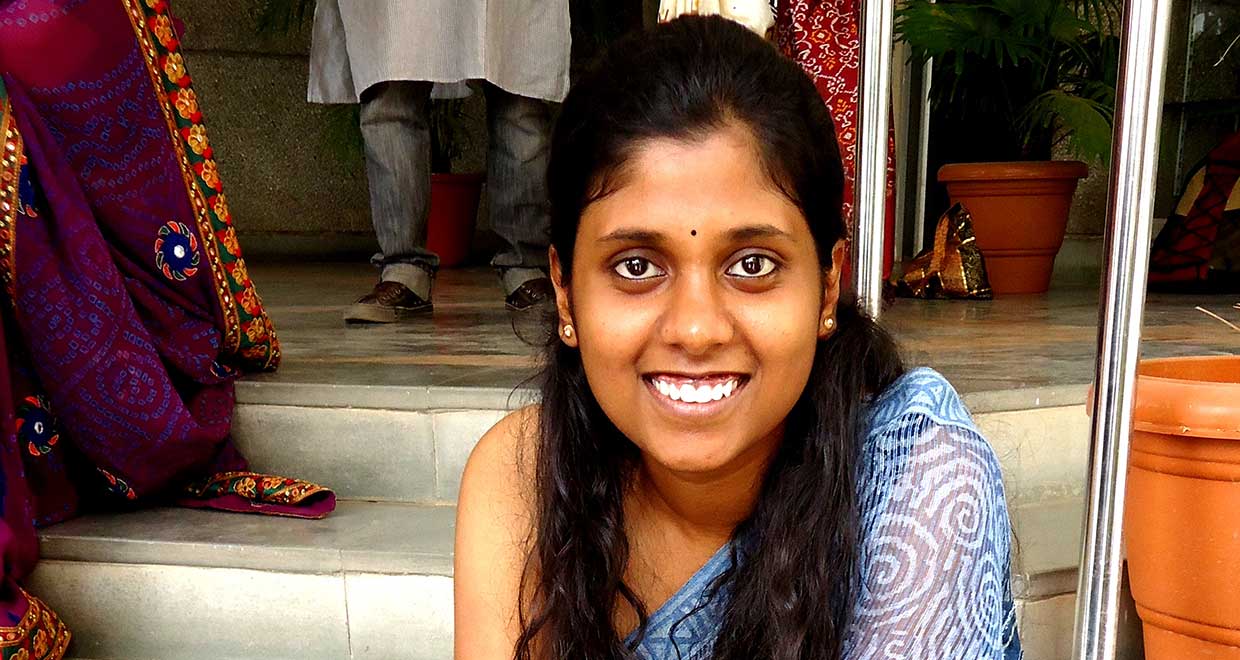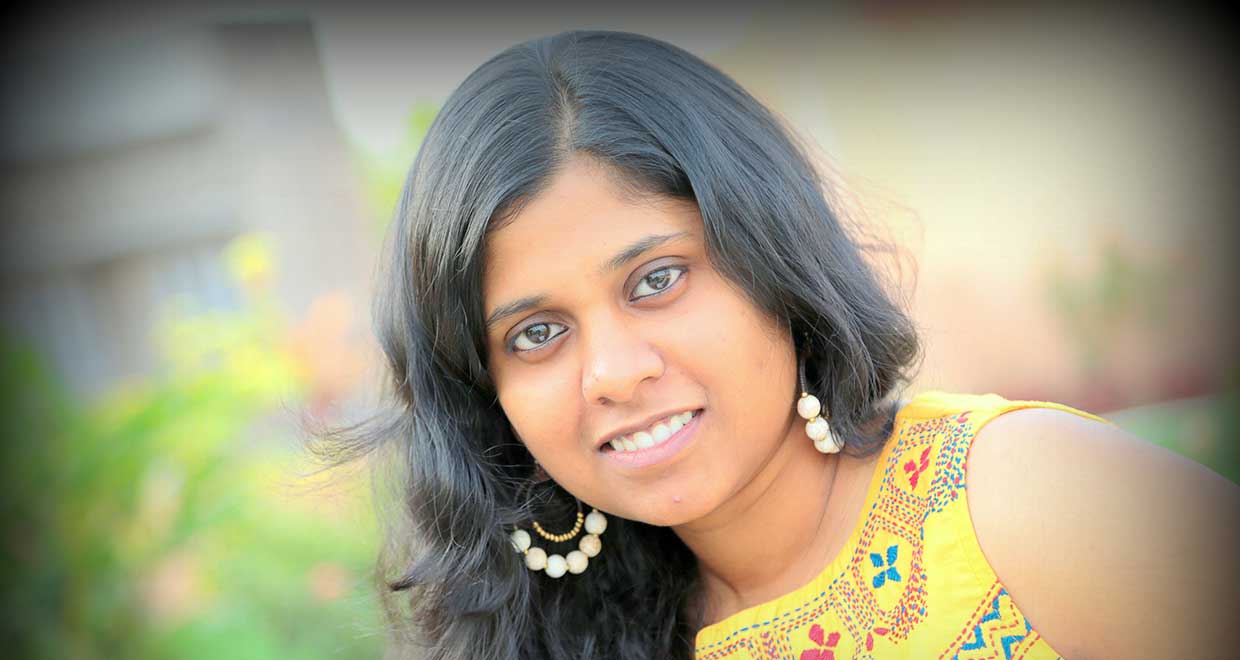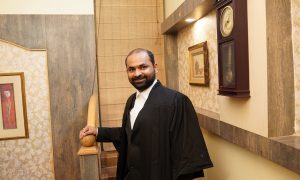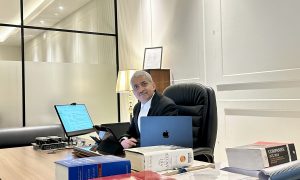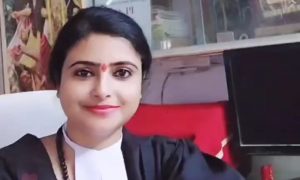Shivani Verma graduated from Gujarat National Law University, Gandhinagar, in 2011. She has been an Associate with India International Jurists for a year, and is currently an Advocate at the Jharkhand High Court. She is empanelled to represent Canara Bank (Jharkhand), Jharkhand High Court Legal Service Committee, etc. Her area of expertise includes civil and criminal law.
She is also the co-founder of Legal Eagle, an institute that offers different mentorship programs for Class XI and XII students for various law entrance examinations.
In this interview we speak to her about:
- Studying at GNLU
- Being a co-founder at Legal Eagle
- Choosing between litigation and corporate law
How would you like to introduce yourself?
I am a lawyer by profession with almost five years of active litigation experience, also now involved with the initiative called ‘Legal Eagle’ where we strive to disseminate important information about the field of law as well as mentor students for various law entrance examinations. I belong to the city of Ranchi, Jharkhand and have returned to my hometown to practice law and contribute to the Legal profession and education in my own way.
When did you decide to take up law as your profession?
‘Degree in law’ is still looked at with some amount of scepticism by people with no background in law, especially in tier-II cities where they are yet to be exposed to the field. It was no different in my case. I am a first generation lawyer and encountered questions like ‘why law?’ though not from within the family, but outside. The idea of doing law came a little late, but did not involve a lot of overthinking. It was in my Senior Secondary that I realised that I wanted to take up Law. A friend of mine told me about the National Law Schools and the interdisciplinary courses being offered at the law Schools. I really liked the course curriculum designed for the National Law Schools in India and decided to go for it. My father belongs to the field of academics and he was very much aware of the new changes taking places in the profession, especially of the concept of National Law Schools in India and the dynamic course curriculum offered by these colleges. Both my parents were very receptive of the idea of me taking up Law.
Tell us a little bit about your life as student of law at GNLU.
Although, I think I could have explored more in my law school days, both in terms of academics and co-curriculars, yet the five years of studying law remains one of the best experiences till date. There is a lot one can do in those five years, lots of things to learn and a lot of things to unlearn. For starters, the curriculum is so designed that the students are made part of several assignments in the first few days of the college itself and deadlines are already set. This is the time when one has the least amount of knowledge on any subject of law and no clue where to seek help. You end up approaching seniors, faculty members, batchmates, outsiders, anyone who can help. This whole process of trying to find solutions breaks the ice between peers as well as somehow defines your college life in a nutshell, where you end up working in teams in so many situations, may be at the cultural fest, representing your college team in a moot, or other several such competitions or merely working in the mess committee together with different sets of people every time, the experiences are very rewarding. Law Schools is not just restricted to learning but also developing one’s personality through the innumerable meaningful interactions that one has as student of law.
I was pretty much interested in everything. I had participated in every inter college moot organised by the college in the five years I studied at GNLU, irrespective whether I made it to the next round or not. I got the opportunity to represent the University as part of the team in a National Moot Court Competition. I had participated in many seminars organised both within and outside college, presenting papers on different topics. I was never a topper, but there was always a degree of healthy competition in the environment, which pushes you to be better. This later also helps in the career.
Dividing time between academics and co-curricular was not very difficult as everyone around me was doing the same, and doing it so well. I thought people in my batch were an excellent bunch of people, so many of them good at so many things. In a lot of ways, it was inspiring, and still is.
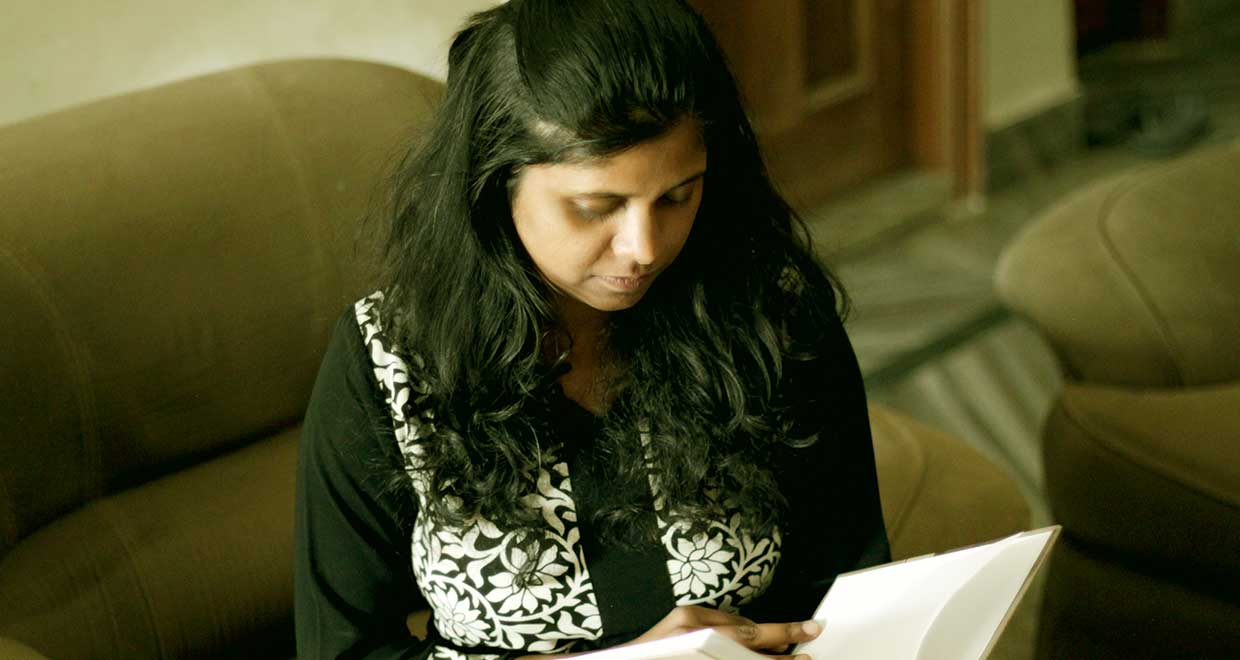
How did you develop an interest in litigation?
Not any one thing in particular, there were several things. The idea of arguing in a matter always seemed to excite me, also a reason I participated in all the moot court competitions in the university. Some subjects like the constitutional law, contract law interested me a lot. As part of academics, I had heard many legal luminaries addressing on several topics and was always fascinated by the real life anecdotes of handling cases and how interpretation of law makes huge impacts in the society we live in. My internship experiences made a lot of things clear to me, also my first job in a law firm where I got the first practical experience of working as a lawyer. This was the time I had decided that I would want go for my independent litigation practice
Could you tell us about the internships you took up, and what you learnt from those experiences?
I have undergone several internships during my five years in college, starting from interning at non governmental organisations like CARE International to District Courts at Ranchi, Jharkhand, High Court of Delhi, Supreme Court of India. I interned at some top tier and mid tier- law firms as well like Mulla & Mulla & Craigie Blunt & Caroe Law Offices, New Delhi, Trilegal Delhi, Bharucha & Partners, Mumbai Office, all in the litigation teams. I had also interned at Anand & Anand Law Firm, Mumbai Office for IPR and Publications houses like Indlaw. I tried doing a mixed bag of internships to get to know the work involved and understand where my real interest lay. Litigation somewhere dominated the choice in internships too. All the internships were very rewarding, as along with getting to see the diverse nature of work that the professionals are handling and being part of them, you also get to learn the manner of working in a structured environment.
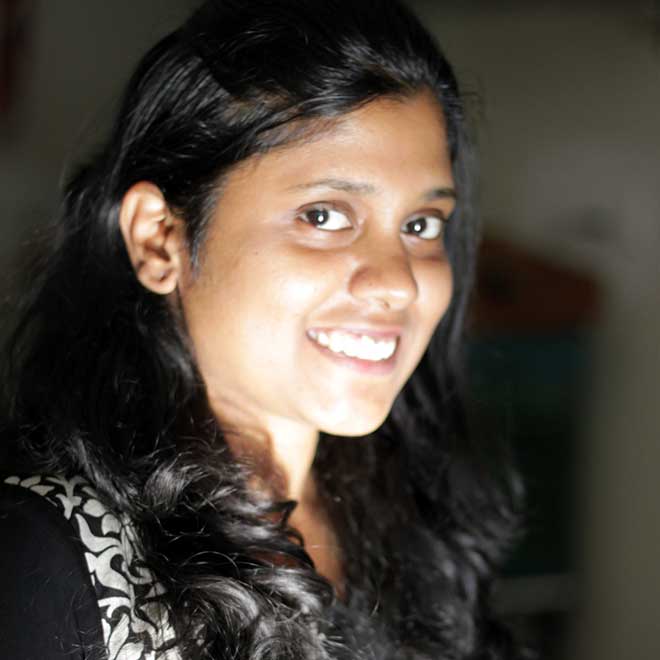
How can students avoid a decision paralysis?
I am of the opinion that ‘Law’ as a field offers the widest arrays of career opportunities and no career choice is bad as such when it comes to a lawyer, as switching from one career option to another is much easier as compared to other fields. Working as an Associate in the Law Firm, and switching to full time litigation in the Courts in India was smooth for me. Similarly, many corporate houses look for candidates with litigation experience to handle their in-house works, so switching from litigation to corporate is also not very difficult and vice versa. There are several examples who have shifted careers and are doing very well in their new fields. ‘Law’ in the country has been ever evolving, and the branches of law ever increasing. One must go with what interests them most and secures their future in it. Decision paralysis, according to me, is only a state of mind. However this can be avoided by undertaking as many diverse internships as one can as a student of law, if not to understand what one wants than to know what one doesn’t want as a professional
On the importance of studying further, though I did not opt for further studies right after graduation, I think having a higher degree coupled with in-depth knowledge of a particular branch is always rewarding. Apart from adding to the personality, exposure and confidence of the candidate, a higher degree sometimes becomes vital in terms of the leap you take even in the later stages of your career. Also a higher degree expands the opportunities as some organisations and certain posts are limited for a candidate possessing a graduate degree or more. It also gives you the flexibility of making big career changes like suddenly switching from a corporate career to academics etc.
When it comes to deciding what next step is to be taken after graduation, different things work for different people. For some, job satisfaction is more important, some would want more security, while some would opt for creative satisfaction. It is important to choose a path that one may enjoy for the longer run and securing oneself in that. I would also like to add here that even if a decision does not turn out the way one thought it to be, it is never too late to steer in another direction, as sky is the limit in this profession.
From a law student to a lawyer, how will you describe the transition?
From a law student to a lawyer, the transition has been at several levels as. Litigation is a very challenging profession but the results can also bear immense satisfaction for a practitioner of law. Although a lawyer remains a law student throughout his life, the way of looking at things from a professional stand point changes. The profession changes your perspectives on things that you had as a student of law. While a lot of theoretical understanding and brainstorming is done as a student of law, the profession also involves many practical dimensions to an aspect or study. A lawyer who is entrusted with the case owes the highest degree of responsibility to the client as well as to the Court of law and has to accordingly conduct his case. A student of law from the protected environment takes a long leap as a professional amidst cut throat competition.
Tell us about your early professional experiences as an Associate at India International Jurists.
My early professional experiences at India International Jurists was quite an eye opener about the field of law as it was my first job. I learnt a lot while handling diverse kinds of matters in the firm. The confidence of handling the matters on my own and switching to independent litigation are the decisions that followed.
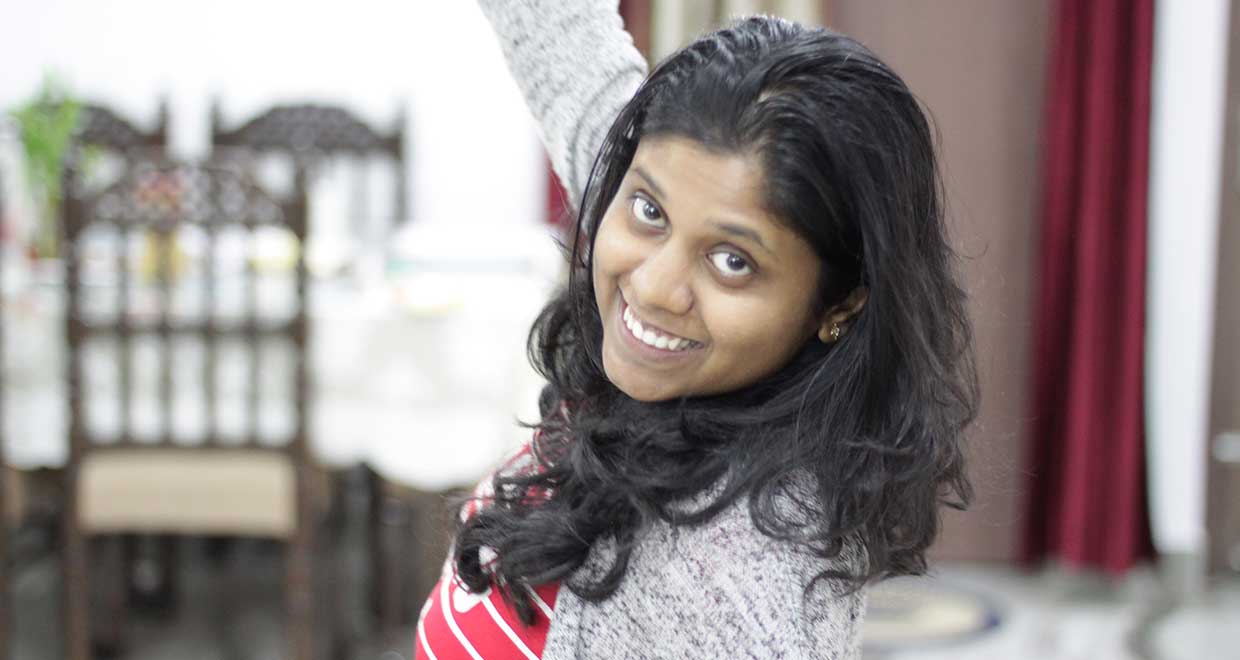
In deciding between Corporate and Litigation practice, what are the parameters that you considered?
In my first job at India International Jurists Law Firm at New Delhi, I got the opportunity to work in both Corporate as well as litigation matters. I was appearing before the Delhi and Gurgaon Courts in several litigation matters and simultaneously also working on some corporate cases, but I enjoyed litigation work more than the corporate practice. And that was the only parameter that guided me to take up litigation in the Courts. In my five years stint in the Jharkhand High Court, I have appeared in a variety of matters ranging from Civil, Service, family disputes, Arbitration matters to some Criminal matters as well, representing the Petitioner’s case as well as the State side. But the maximum work has been on the Civil side, especially Service matters which has become a core area of practice now.
Do you try to consciously build a specific body of work?
It is a fact that apart from doing the maximum number of cases that came my way, as a first generation lawyer, I have also consciously tried to build my Curriculum Vitae doing the maximum variety of work as a lawyer, so as to build a good body of work, not restricting myself to anything specific. This is also the reason that apart from working on my own matters, I had worked with the two former Advocate Generals and Additional Advocate General of the State representing the State of Jharkhand in a variety of matters so as to get maximum exposure in terms of work. I have done Public Interest Litigations, Service/ Employment matters, Civil cases, Property matters both representing the Petitioner’s side in some as well as Defendants in some, as I was appearing from the State Government side too. All the matters that have come in the way have been very interesting, though I would refrain from giving a detailed account of them. I have appeared for some social causes through Public Interest Litigations and they have been immensely satisfying experiences. There have been certain cases for implementation of provisions of motor vehicles act to curb the increasing accidents on the roads, challenging the framework of Right to Education act to make it more effective, framing of rules for formulating rules for the State police to check the incidents of custodial death. There were several other civil and criminal cases. These cases and many more have helped me build my career as it stands today.
How did you come to become one of the Founders at Legal Eagle?
Legal Eagle is an initiative started by my colleague, Shubham Gautum, an NLIU Graduate and me. In fact, I would like to credit him for this brilliant idea. Belonging to a tier II city, being first generation lawyers, studying in National Law Schools and coming back to our hometowns to practice law makes our journey somewhat similar. We were discussing that a lot many people in the town are still unaware of the field of law and the concept of national law universities and other good colleges, the prospects that it offers as a professional degree, when Shubham came up with the idea that we should contribute to the field by spreading information about this field, counselling kids and their parents and also mentoring kids for the examinations. The idea instantly clicked with me. This motivated us to start this initiative from our own understanding and experience. In the year 2016, we held as many as fifteen seminars and interactive sessions at different schools in Ranchi addressing students of Class XI and XII, informing them about the field, how it works, the pros and cons, what to expect as a student of law and as a professional, the current available options of the interdisciplinary degrees etc. With time a number of students have associated with us.
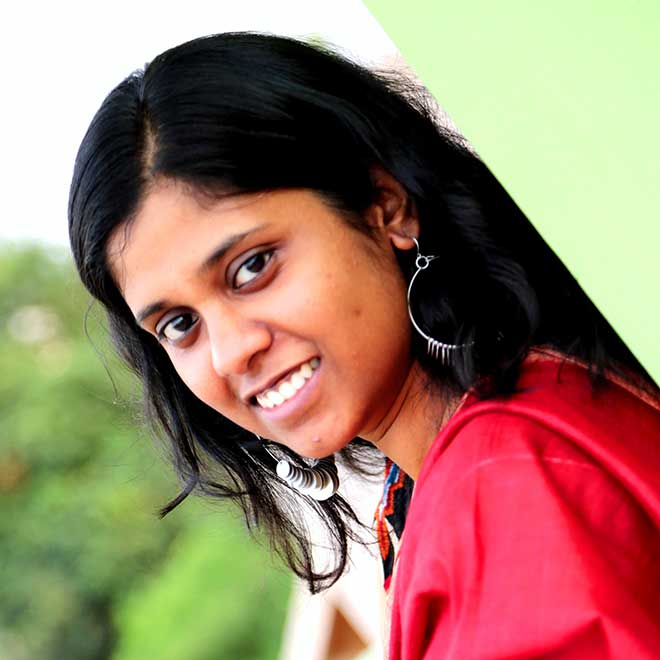
What gaps in awareness and legal education does Legal Eagle seek to fill?
‘Legal Eagle’ is more of a platform to make the students and parents know of the field of law as it exists today. It is a fact that most of the families in smaller cities in India are aware of the fields of engineering and medicine but have complete lack of information when it comes to less trodden career fields like Law, Fashion Technology, Mass Communication, Hotel Management etc. Though law is the emerging career of these times but the awareness about the field still remains quite low, especially in smaller cities. In order to bridge these differences, we are holding seminars, discussions, interactions at various forums addressing all kinds of audiences to spread information about the field. Apart from this we are also mentoring students for the upcoming law entrance examinations giving them full class room environment and preparing them for the upcoming examinations.
What does the scope of work you undertake include at Legal Eagle?
The scope of work at Legal Eagle is wide. Apart from the interactive and counselling sessions, as a Mentorship Institute, we are providing the students the best guidance possible to appear in the law entrance examination through class room teaching for examinations like CLAT. We provide them with the materials, a number of Mock tests on different patterns, sectional mocks, quizzes. We are conducting regular classes for different subjects/ topics covered in these tests. We are in regular touch with the parents of the kids being mentored by us by giving them performance maps. With a fresh batch of students coming up in the month of April, after their Board examination, a lot of time will be involved in that as well.
‘Legal Eagle’ is a pet project, very close to our heart. Both me and Shubham believe in it and are working everyday towards the goal. We aim to mentor a limited number of student with the best guidance we can. Right from addressing a crowd to counselling a parent or mentoring students, I love every aspect of the work in ‘Legal Eagle’ and that makes it very enjoyable.
Did you have a mentor or guide during the formative years of your career?
The importance of mentor or guide has to be acknowledged, be it any field. And especially in this field, where a lot depends on the skills and experience of being in the profession. During the formative years of my career as a litigator, I was working with the Senior Advocate, M. Sohail Anwar, a very well known and respected professional in the field. Working with or being attached to someone in the formative years in the field of litigation cannot be overstated as observing and learning the little nuances of the profession becomes very vital when handling a case on your own, as you shape your future in the backdrop of those experiences. The little things like closely watching your mentor dealing with the client and the case at various stages are very important. Especially for a first generation lawyer, who has no exposure whatsoever, of the field.
Where would you like to see Legal Eagle five years down the line?
Five years down the line I see ‘Legal Eagle’ bring a big change in the prevailing environment where people’s reservation of opting for the ‘field of law’ is dispelled and the information about the existing scenarios reaches all and people are able to make informed career choices . We hope Legal Eagle makes an indelible mark on the minds of people, especially the students who are associated with us. We see Legal Eagle soar in five years time.
Do you believe that we are becoming open to careers other than those belonging to the STEM disciplines?
The prevailing mindsets of most of the parents we come across, is to make their children opt for streams like science in the higher secondary so that they can go for professions like engineering and medicine, without even knowing if their interests lie in that field. Also, the people who have done law are only thought to be the ones practicing in the courts and there’s a particular image of the practicing advocates in our country which is not very positive. They are unaware how much the field has expanded and how much it can offer. In fact it has become one of the most dynamic professions of these times, where lawyers are not just restricted to court rooms, but are now part every company’s board room, small and big agencies, banks, public sector enterprises, start ups, think tanks, local, national and international organisations. Corporate sector is full of lawyers in different roles. Lawyers are entering academics. Percentage of lawyers cracking UPSC every year is on a rise. Most bureaucrats and politicians have a background in law and that gives them an edge. We have counselled a number of students and their parents telling them about this field and what it can offer to a professional. Most of the time, a student is very convinced and wants to take up law but faces dissent of the parents. We then counsel the parents about the profession to dispel their doubts. There is definitely a shift in people’s approach. They are becoming aware and are more willing to go for the new age disciplines today. But then again, in a smaller city, the ratio of such people is very less, as compared to a metro city. Hence the pace of the change in the mindsets is also slower.
As the co-founder at Legal Eagle, what does a typical working day look like for you?
At Legal Eagle, the classes usually starts early. Planning and organising takes entire days sometimes. Even when the active sessions are not going, the planning is always going in the background. We keep organising free weekly quizzes for students to take maximum benefit of. For the kids we are mentoring, apart from the regular classes in every subject we conduct as many free mocks, sectional tests etc. for them to take maximum benefit of.
How do you keep yourself updated about the latest developments in the law?
The best way to be updated about the latest developments in law or in any other field for that matter is by staying aware of the things happening around on a daily basis. Newspapers are the best way of staying abreast with everything around. Apart from that, like the many developments in the field of law, so are there advanced multiple software for legal search. Being updated with the latest laws and accessing them have become easy in today’s times. Also the fraternity is full of people reading and researching on everything new and the out of court intensive discussions with the peers and seniors serve as great advantage to lawyers.
What books, judgements that you have read would you say have played an integral role in shaping your legal philosophy?
Every system is a product of its own unique experience, similar is the case with our very own system. ‘India since Independence’ by Bipan Chandra is one such book that has given an account of the history that has lead to the making of the contemporary times and is a very good read to understand where and why India stands today. Legal Philosophy can be built only on the backdrop of history. Another book, ‘Before memory fades’ by Fali S. Nariman describes his journey as a lawyer and gives perspective to budding lawyers on the field of litigation. There are several judgements which have acted as catalysts for taking up the profession.
What are the causes you feel strongly about?
There are many social causes I feel strongly about. One of them is women’s cause in the society. I am yet to do a lot and contribute as a lawyer, in whatever capacity I could. I am an empanelled lawyer of JHALSA (Jharkhand State Legal Services Authority) for giving legal advice and assistance to poor persons who are unable to engage a counsel. I have been representing those clients on behalf of JHALSA.
It is the concern for the legal field which made me take up a project like ‘Legal Eagle’ where awareness and education is one of the causes that I feel needs to be addressed.
How do you manage your time between your professional and personal interests?
I have always consciously tried to create time for my personal interests apart from the professional life, as my personal time gives me the much needed sanity and boost for the work ahead. It becomes very difficult on certain days where I am caught up in work throughout the day but certain days I have the liberty and time to mould according to my interests. My interests outside law are many. I could spend entire days painting, swimming, reading a book, watching movies or travelling someplace.
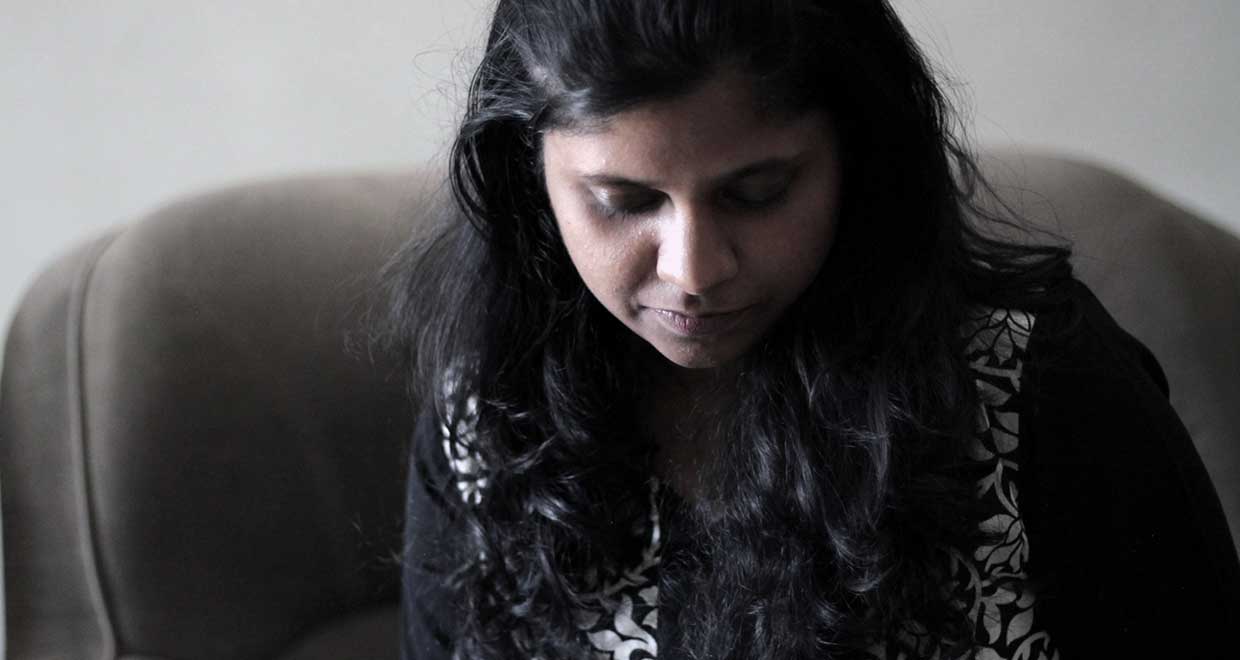
What advice would you like to give to students aspiring to build a career in law?
For students aspiring to build a career in law, my advice would be to use the immense potential that the degree in law has to offer. Be vigilant, as it is very much important for a law student to be aware of the things happening around. Finally and most importantly, working hard is the only mantra to be successful in your own terms.
In this cut throat competition, for a student preparing for any competitive examination, the highest degree of commitment is required. The student preparing for the exam should give minimum number of hours of study everyday for the examination and stick to the daily schedule, as being organised is very important at this stage. Solving past year papers, maximum question banks helps one check his speed and accuracy in solving questions. Understanding the nature of questions is very important to understand the examinations. Lastly, belief in oneself should never be lost.
Like they say, “if the end is clear, the means to the end will take care of itself”.

